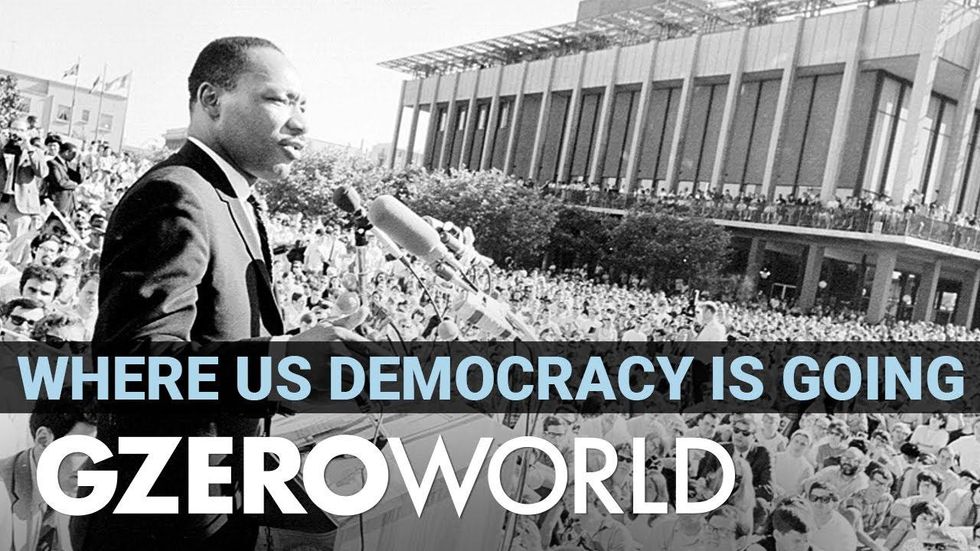Trending Now
We have updated our Privacy Policy and Terms of Use for Eurasia Group and its affiliates, including GZERO Media, to clarify the types of data we collect, how we collect it, how we use data and with whom we share data. By using our website you consent to our Terms and Conditions and Privacy Policy, including the transfer of your personal data to the United States from your country of residence, and our use of cookies described in our Cookie Policy.
{{ subpage.title }}

No second-class citizens: the challenge of diversity in democracy
In his new book The Great Experiment, political scientist Yascha Mounk digs into how tough it is for very diverse democracies to treat all their citizens equally. The price to pay if it goes wrong is high: society falls apart.
The US faces many ongoing challenges, especially on race relations, but has done much better in some areas than was predicted decades ago – for example, the increasing frequency of interracial marriages, Mounk tells Ian Bremmer.
Where America has made much less progress, Mounk admits, is on racial disparities in wealth — which he says is the deepest problem we have in the US today. Still, "it's important to see the nuances": accumulating wealth takes long, and the income gap between Black and white Americans has been reduced in recent decades.
"There is a real pocket of poverty because of [the] long-term structural impacts of all the injustice in American history ... but the modal experience of African Americans today is hopeful," Mounk says. "And actually, when you ask African Americans how they feel about the American Dream, how they feel about the future of America, they are more optimistic than white Americans."
Watch the GZERO World episode: Authoritarians gone wild